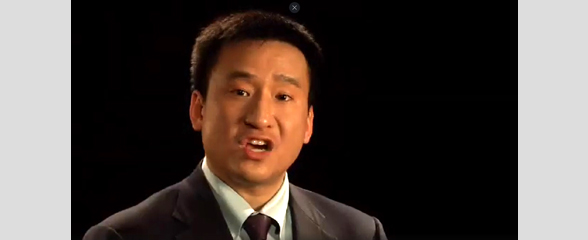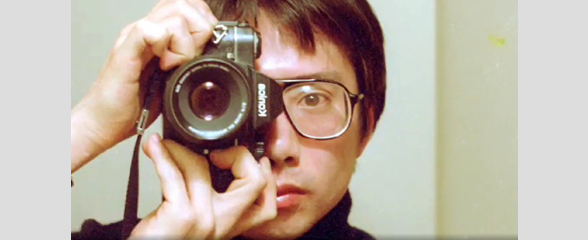Many Voices, One Humanity
In conjunction with MOCA's permanent exhibition, With a Single Step, this collection of video interviews with individuals from the diverse Chinese American community asked participants to reflect upon how their personal stories resonate with Chinese American history.
Rights & Usage:
All rights to the interviews, including but not restricted to legal title, copyrights and literary property rights, belong to the Museum of Chinese in America (MOCA). Interview can only be reproduced with permission from the Museum of Chinese in America (MOCA).

2008.041.011 Oral History Interview with Frank Wu
Frank Wu is a civil rights lawyer, professor, and award-winning author of Yellow: Race in America Beyond Black and White. His book has become an essential text in Asian American Studies. He currently teaches law at Howard University and frequently lectures on civil rights law. “When I was a kid growing up, the last thing I ever would have wanted to do was talk about or think about race, ethnicity,†he recalls in this interview.
Frank grew up in Detroit, Michigan in the 1970s. His dad was an engineer at Ford Motor Company, which relied heavily on Asian workers for research, development and product design. He briefly discusses his experience of childhood cruelty on the playgrounds, and how the especially tough times in Detroit made it one of the hardest places in America to have an Asian face during the recession. He discusses how the confrontation leading up to the brutal murder of Vincent Chin in his city and how he or his cousin could have been the victim of this racial scapegoating and violence. It made him realize how words had the powerful to do damage but also to change the world. He reflects on dominant image of Asian Americans as the model minority myth, how it means that they should be submissive, passive, and deferential, and how it was first used to contrast Asian Americans with African Americans and other people of color. In his view, Asian American communities have generally not seen the importance of vigorous participation in democracy and the importance of making a fuss. His experiences as the first Asian American law professor at Howard University, the nation leading historically black institution, made Wu realize the importance of supporting other groups and sharing a common cause. Advancing civil rights, he believes, goes beyond self-interest and involves seeing that there are principles involved that affect others.

2008.041.012 Oral History Interview with Henry Yung Jr.
Henry Yung Jr. only very recently connected with the history of his distant ancestor, Yung Wing, the legendary writer, diplomat and first Chinese student to graduate from an American university. A fourth generation Chinese American, Henry attended Rutgers University and worked in the tech field. His late discovery is no less significant, as Yung Wing writing speaks to him with a sustained relevance even today.
Henry had little interest in his Chinese American heritage or familial relation to Yung Wing as a child, but his interest grew as he got older and read Yung Wing’s autobiography. Henry recounts some of this biography and notes that he was able to relate to a lot of his ancestor’s struggles and decisions at the same age. Wing was educated by missionaries in China and was later brought by them to America to continue his secondary education. He became the first Chinese person ever to graduate from an American university when he graduated from Yale in 1854. After graduating, Wing returned to China and held various government positions. Through the Chinese Educational Mission that he founded, he sent 120 students to study in the United States, however, political changes brought this to an end. By the end of his life, Wing did not have much wealth or power and was in fact in political trouble. Reading his ancestor’s autobiography, Henry thought it interesting how Wing could speak directly to him about his trials and tribulations in the United States and China and realized that he and Wing faced a lot of the same problems and difficulties. Henry addresses the stereotype that Chinese Americans are good at math and science and are good students and acknowledges that this might have helped him in life. He thinks that the one thing you could take away from Yung Wing’s story is that he made the most of the opportunities he was given. He concludes that young people will find a lot of value in learning about their ancestors and the problems they faced, as he did, as it helps give them perspective on their own problems.